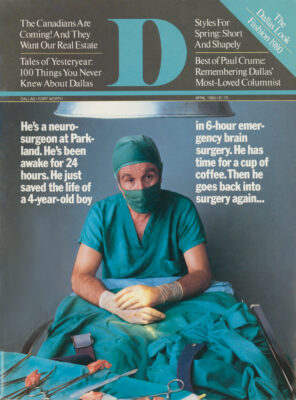The best of this month’s films are concerned with women and the work they choose: A coal miner’s daughter who can’t seem to do anything until she discovers she can sing, becomes a big success, and finds herself imprisoned, briefly, by her free choice; a young woman who want to produce films first and get he recalcitrant lover to admit he loves her second.
Men are less fortunate in their job choices – a double agent, a cop pretending to be gay to hunt down a killer – and their films are, respectively, dull and horrific.
Coal Miner’s Daughter. This film based on Loretta Lynn’s autobiography is so sincere and so well acted that I feel like a scab in adding that it turns bland about three-quarters of the way through. It starts feeling a bit like the end of a long bus trip. Loretta herself takes a lot of bus trips in the movie, and it gets so she doesn’t know where in thunder she is.
After a fine beginning – we meet young Loretta and her Kentucky folks, who might have stepped out of a Dorothea Lange photograph – we soon know exactly where we are: in the midst of another show-biz tale about the rigors of the road and the rocki-ness of the journey to success. Will Loretta (Sissy Spacek) and her husband Dolittle (Tommy Lee Jones), who has literally shoved his wife onto a stage because he likes her voice, split up? That’s about the extent of the dramatic suspense, other than will Loretta have another headache?
I think I can safely venture that there is nothing more to be said on film in the genre of show-biz bios. Bette Midler gave spirited mouth-to-mouth to the cliches in The Rose, but the show still died halfway through. Bob Fosse killed himself, metaphorically anyway, in All That Jazz, trying to convince us his central character was a redeemed hollow man instead of a trite bore.
Coal Miner’s Daughter, in spite of a good performance by Jones and close to a great one by Spacek, ultimately dies of terminal shapelessness and niceness. You long for some original fingerprints, as in Norma Rae, and a few scenes that explore character rather than avoid it. You sense the real coal miner’s daughter looking over the shoulders of writer Tom Rickman and director Michael Apted. Loretta might be a little disheveled at times (she breaks down on stage), but there is no real vulnerability in this film portrait.
Just Tell Me What You Want has Max (Alan King) making requests the way Ethel Merman belts out songs: at the top of his lungs. He doesn’t get back at enemies; he levels them and salts the ground. He has an alcoholic wife (Dina Merrill), various young things on the side, and a steady lady called Bones (Ali MacGraw) who lives in an apartment (courtesy of Max) that would make an interior decorator chartreuse with envy.
Max the monster runs a conglomerate in the style of Attila the Hun. For some reason Bones loves this creature, and somehow writer Jay Presson Allen, director Sidney Lumet, and Alan King make us see why: Max may be a monster but he is also monstrously alive, and never dull.
After Bones has apparently broken his heart (and we thought he didn’t have one), he carefully takes out his contact lenses, weeps like Niagara Falls, screams for his secretary (our beloved Myrna Loy), and starts getting even. King handles the mood swings deftly and keeps the larger-than-life Max from turning into caricature.
Ali MacGraw isn’t in the major leagues yet, although she has come a long way from Goodbye, Columbus. You’ll probably be hearing a lot about the sequence in Bergdorf Goodman when she acts like the other Ali and beats the bejesus out of King. It has some of the pizzazz of the old screwball comedies.
But this film doesn’t have their charm, probably by intent. There is no way anyone can make Max charming and he shouldn’t be. Excellent cameos by Keenan Wynn and Tony Roberts, by the way.
The Human Factor. Writer Tom Stoppard and director Otto Preminger have managed to make Graham Greene’s novel about a double agent more boring than Bowling for Dollars. Greene apparently approved this screen version, although he thought it was too faithful to the novel. Ironic, considering that Greene was once a feisty movie critic. That Greene would have excoriated this wheeze.
The movie is faithful to the book to the point of being a plot recitation, leaving out all those things that transform a work into art. In The Human Factor, there’s been a leak in Section Six, the African section. A group of high-ranking “firm” members wonder if it might be Davis (Derek Jacobi). If so, he will have a heart attack, or whatever, courtesy of Dr. Percival (Robert Morley). The fact that it is all so civilized, so British low-key, is meant to chill the blood. Alas, it remains unchilled.
The film’s central character is Castle (Nicol Williamson) who is considered too dull to be suspected, even though he’s married to a black African named Sarah (Iman). We get the beginning of their relationship in a long, long flashback that confirms only that Inman is an amateur actress. (Preminger, you might remember, cast Jean Seberg in Shaw’s Saint Joan, adapted for the screen by Graham Greene. Poetic justice here?) Williamson has given us a memorable screen Hamlet and a most original Holmes, but no one lives in his Castle.
If the point is to prove that real espionage is duller than office politics, it is more than convincing.
Cruising. A man in the bow of a boat spots something floating in the greasy harbor water. It turns out to be the right arm of a former human being and the curtain-raiser for this movie that is Guignol without the Grand. A crazy is on the loose again in New York City. He likes to dress up in leather, cruise the gay S-and-M bars, pick up a stud for the night, and then go to work on him with a knife.
The police department’s response is to send into this leather world a decoy called Steve Burns (Al Pacino), his name a hint of the film’s theme: Be wary of what you pretend to be lest you become the part. When asked by his captain how he likes the assignment, Steve says, “I love it.” Curious response from a straight cop.
A note at the beginning claims that “this film isn’t intended as an indictment of the homosexual world.” It is mostly an indictment of writer-director William Friedkin’s sensibility. He has changed the milieu of Gerald Walker’s fine, chilling novel from New York at large to the realm of leather bars for the voyeur he assumes is in all of us. Morality aside, Friedkin has an aesthetic responsibility to illuminate this world he ogles like a rube. Why do these men turn sexuality into a ritual of humiliation? Friedkin doesn’t really care. Guignol is all.
If Wise Blood had no credits, I would defy anyone, especially an auteur critic, to come up with John Huston as director. It is a Southern tale, based on Flannery O’Connor’s 1952 novel about the pain of becoming a Christian. It is kinky and eccentric: Sex collides with religion, and sin does God knows what. At times it is a tale told by an idiot, although the idiot seems congenial enough – he just wants to dress up in a gorilla suit and shake people’s hands.
Mostly it is about Hazel (Brad Dourif) who drives around in an old heap, but it’s never clear just where he wants to get to. His hellfire-and-brimstone Dad (John Huston) has left his boy with a sense of sin; he preaches on corners about the Church of Truth Without Christ.
Benedict Fitzgerald has adapted the O’Connor novel and Huston has assembled an outstanding cast that includes Ned Beat-ty as a rival street preacher, Harry Dean Stanton as a fake blind preacher, and Amy Wright as his promiscuous daughter. Dropping in on this movie is a bit like beaming down to an alien planet. It’s fascinating for a while and even funny. Then the funny turns into something else, and the movie shifts from gothic Southern humor to pure gothic.
I felt let down at the end, as if I’d been told a shaggy strange tale, although the telling is splendid. I never would have guessed Huston, except for his brief appearance in the move.
Related Articles

News
Methodist Charlton Names New CEO and Steward Offloads Five More Hospitals for $1.1 Billion
Plus Texas Health Mansfield's new president and CEO, TimelyCare recognized by EY, and more.
By Bridget Reis

Hockey
What We Saw, What It Felt Like: Stars-Golden Knights, Game 1
Deja vu all over again. Kind of.
By Sean Shapiro and David Castillo

Movies
A Rollicking DIFF Preview With James Faust
With more than 140 films to talk about, of course this podcast started with talk about cats and bad backs and Texas Tech.
By Matt Goodman


